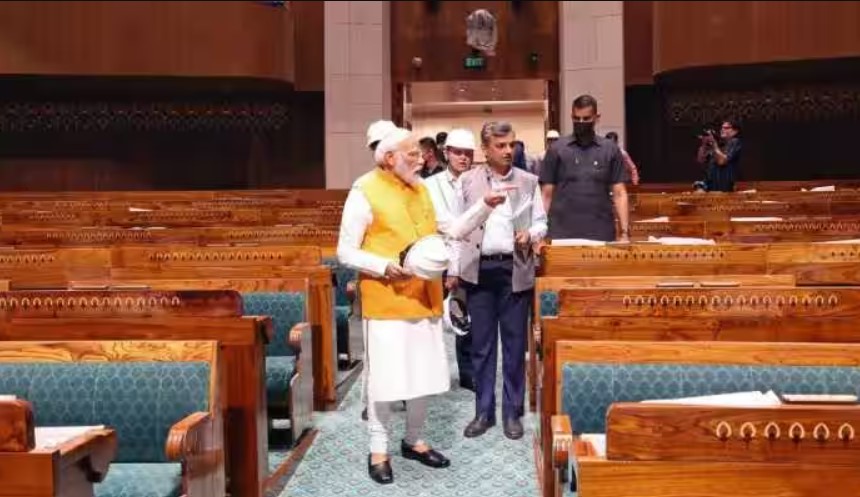The inauguration ceremony of the new Parliament building, a grand symbol of India’s democracy and legislative power, was overshadowed by controversy as Prime Minister Narendra Modi and the ruling Bharatiya Janata Party (BJP) faced a widespread boycott by major opposition parties. The event, which was meant to be a momentous occasion celebrating the democratic spirit of the nation, instead highlighted the deep political divisions and tensions prevalent in the country’s political landscape. This article examines the reasons behind the boycott and the implications it may have on India’s parliamentary proceedings.

Parliament Building Inauguration Marred by Boycott: PM Narendra Modi and BJP face Opposition from Congress, CPI(M), AAP, and TMC
Several prominent opposition parties, including the Congress, Communist Party of India (Marxist) [CPI(M)], Aam Aadmi Party (AAP), and Trinamool Congress (TMC), chose to boycott the inauguration ceremony of the new Parliament building. This collective move by the opposition was seen as a direct expression of their discontent and opposition towards the Modi government’s policies and approach.
Congress, the largest opposition party, criticized the government’s handling of various issues, including the handling of the COVID-19 pandemic, the state of the economy, and the alleged erosion of democratic values. The party accused the BJP of using the inauguration event as a political spectacle to divert attention from pressing matters facing the nation.
The CPI(M), known for its ideological differences with the BJP, expressed its concerns about the government’s alleged attempts to undermine democratic institutions and erode federalism. The party cited the controversial farm laws, the handling of student protests, and the suppression of dissent as reasons for its boycott.
The AAP, which governs the capital city of Delhi, accused the Modi government of centralized decision-making and criticized its alleged disregard for cooperative federalism. The party cited the lack of consultation and coordination with states on critical matters as a reason for its absence.
The TMC, led by West Bengal Chief Minister Mamata Banerjee, cited the ongoing political tussle between her party and the BJP as the primary reason for its decision to boycott the event. The TMC accused the BJP of using the inauguration as a platform to promote its political agenda in West Bengal, where the recently concluded state assembly elections witnessed a fierce battle between the two parties.
Implications for Parliamentary Proceedings:
The collective boycott by major opposition parties raises concerns about the impact it may have on parliamentary proceedings and the functioning of democracy in India. The absence of opposition parties during the inauguration may indicate a further intensification of political polarization and hamper constructive dialogue and debate on critical issues.
A robust democracy thrives on healthy opposition and the exchange of diverse viewpoints. The absence of a substantial opposition presence in such a significant event undermines the spirit of democratic deliberation and accountability.
The boycott also highlights the urgent need for political parties to bridge the deepening divides and engage in meaningful dialogue to address the concerns and aspirations of the people they represent. A fragmented political landscape with limited cooperation can impede progress and hinder effective governance.
Conclusion:
The boycott of the inauguration ceremony of the new Parliament building by major opposition parties, including the Congress, CPI(M), AAP, and TMC, has cast a shadow over the event that was meant to be a celebration of India’s democracy. The collective move reflects the growing discontent and political polarization in the country. The absence of opposition parties during such a significant occasion raises concerns about the impact on parliamentary proceedings and the democratic fabric of the nation. It is crucial for political leaders to find common ground, foster dialogue, and prioritize the interests of the nation to strengthen India’s democratic institutions and ensure a prosperous future.
